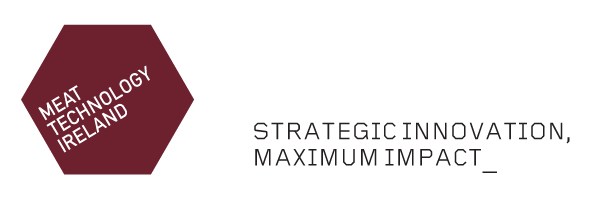RP5: Meat and Health
Irish national nutrition surveys have shown there are high proportions of individuals, across all age groups, with inadequate intakes of key micronutrients (iron, zinc, vitamins A, D and B12). Lean red meat is rich in these critical micronutrients. The MTI research plan will undertake an investigation to highlight the nutritional and health benefits of Irish beef and lamb for Irish children and adults. This will provide the scientific evidence to enable formulation of accurate, truthful and positive messages about the role of meat in the health of the population throughout life. The MTI will provide evidence on whether meat can provide significant amounts of vitamin D to Irish individuals and whether increased meat consumption can off-set age-related muscle loss (sarcopenia) in older adults.
Update – Beef2022 Teagasc Grange
The role of meat in the diet has come under scrutiny recently due to an increased public emphasis on providing healthy diets from sustainable food systems and due to health concerns relating to the consumption of red and processed meat. The MTI review aimed to summarise the scientific evidence relating to meat consumption, actual meat intakes and the contribution of meat to energy and nutrient intakes of children, teenagers and adults in Europe. The available literature has shown that food-based dietary guidelines for most countries recommend consuming lean meat in moderation and many recommend limiting red and processed meat consumption.
The role of meat in the European diet: current state of knowledge on dietary recommendations, intakes and contribution to energy and nutrient intakes and status- C. Cocking, J. Walton, L. Kehoe, K. Cashman, A. Flynn, Nutrition Research Reviews (2020), 33, 181–189.
- ‘Unprocessed beef and lamb’ is a nutrient dense food group which contributes significantly to the dietary intakes of a number of important macro- and micro- nutrients in Irish school-aged children, teenagers and adults (including young women and elderly) but contributes relatively small proportions of total fat, saturated fat and sodium. Higher consumption of unprocessed beef and lamb was not associated with increased coronary heart disease risk through raised blood pressure or increased cholesterol levels in Irish adults, including nutritionally vulnerable groups such as older adults and women of child-bearing age.
- Overall, fresh beef contributes nutritionally significant amounts of macro- and micro-nutrients to the diets of young children living in Ireland. The contribution of fresh beef versus processed meats to nutrient intakes varies considerably in young children. Of note, among consumers, almost one-quarter of sodium was supplied by processed meats compared with less than 10% by fresh beef. Inappropriate reporting of meat as an aggregated food group, including all sources of meat under the same umbrella, obscures the relative benefits and risks from consuming fresh beef versus processed meats. Targeted messaging is warranted to emphasise the valuable, and often overlooked, contribution that fresh beef, eaten in moderate amounts, can make to nutrient intakes among young children.
Lyons, C. Cocking, L. Kehoe, B. McNulty, A. Nugent, J. Walton, K Cashman, A. Flynn. Proceedings of the Nutrition Society (2020), 79 (OCE2), E453
- Irish beef contains four nutritionally relevant vitamin D-related compounds – vitamin D3, vitamin D2 and the associated 25-hydroxyvitamin D3 and 25-hydroxyvitamin D2 Two of these compounds (vitamin D2 and the 25-hydroxyvitamin D2 metabolite) are not typically captured in food compositional databases to-date. Their inclusion in the calculation of total vitamin D content for beef is a truer reflection of its potential vitamin D supply.
- A seasonal variation in all four of these vitamin D-related compounds (lowest in late-Winter/early-Spring, highest in late-Summer/early-Autumn) was evident in Irish striploin beef steak. This emphasises the need for pragmatic strategies to maintain overall vitamin D content of beef at peak levels all year-round potentially enabling a ‘source of vitamin D’ nutrient claim in Europe.
- Overall, these new analytical data highlights how Irish beef as an important contributory food source of vitamin D in the diet. Irish beef together with other red meats likely contribute about a fifth to the daily vitamin D intake by Irish adults, an under-appreciated fact by many.
KD Cashman, SM O’Sullivan, K Galvin, M Ryan. Contribution of Vitamin D2 and D3 and Their Respective 25-Hydroxy Metabolites to the Total Vitamin D Content of Beef and Lamb. Curr Dev Nutr. 2020;4(7):nzaa112. doi: 10.1093/cdn/nzaa112.




